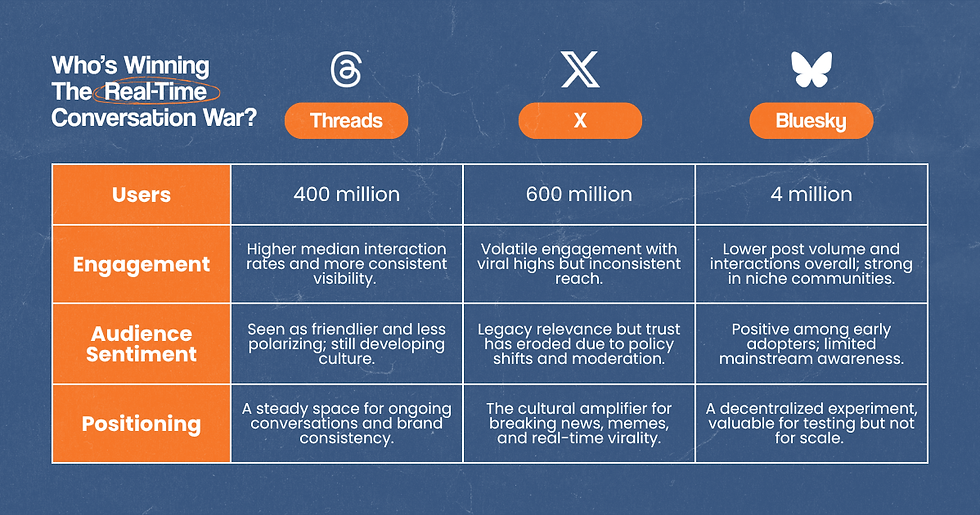Why Customer Service and Social Media Management are Inseparable
- Eric Elkins

- Aug 6, 2015
- 3 min read
Updated: Jun 19, 2020
In today’s connected world, the fact that a business’s presence on social media can grow and retain customers is a reality. We also know that you have to do more than just be online – you need a strategic understanding of your brand’s role in the internet ecosystem. If you own a business, you also own a social media reputation, and that reputation’s condition is critical to your success.
As a community manager at WideFoc.us, I find myself applying skills from my customer service background while interacting with social media users every day. This overlap is not surprising, because today’s consumers are savvy, informed buyers who understand their social influence when they endorse or condemn a brand. If you represent a brand, it’s important to give customers every reason to praise you. And it's critical to monitor social channels for mentions.
Despite this, many businesses on social media haven’t taken adequate steps to expand their customer care capacities via social platforms. I suspect the reason is that many executives and business owners still don’t understand that anytime they interact with their social media audience, they’re also doing customer care, and the only variable they control is the quality of the service they provide. After all, maintaining relationships with your customers is essential to keeping their business, no matter what medium you use to reach them.
Here’s an example of a user reaching out to a client’s Facebook page for technical support:

The best way to handle support requests on social media, or a negative comment, is to respond to them in a way that diffuses the situation and shows the customer, and whoever else might be listening, that your brand is there to help. The top priority is to move the conversation out of public view. This could mean solving the problem directly (“We’ll get that resolved for you right away, John! Check back with us in 20 if it’s not fixed.”), or providing the user with the resources to get the help they need:

Sometimes, users complain about things that can’t be addressed directly.

In this example, my coworker’s reply prevented a discussion from turning negative by providing the user with an outlet for her concerns (focusing attention on resident updates).
However, customer service is about more than just responding to support requests and negative comments as they come in. It’s also about keeping positive discussions positive, and happy users happy.


In this example, the top tweet is a Twitter user referring another user while mentioning one of our clients. Replying to (or otherwise acknowledging) a positive comment not only makes the user feel good and encourages them to interact again, it promotes rapport and brand loyalty so that they’re less likely to complain on social media if they have a negative experience with your brand. It’s not so different from the friendly treatment customer service reps provide when approaching happy or neutral customers in any customer care-oriented setting.
Remember, customer care as a part of social media management is about being present, engaged, empathetic, and helpful at all times when interacting with your audience, regardless of what they’re saying.
Do you know of any brands that are really winning at social customer service? Call them out in the comments.
—by Erin Maes
Erin Maes is a is a lifelong writer who is passionate about language, communications, storytelling, and how they differ across mediums and platforms.










